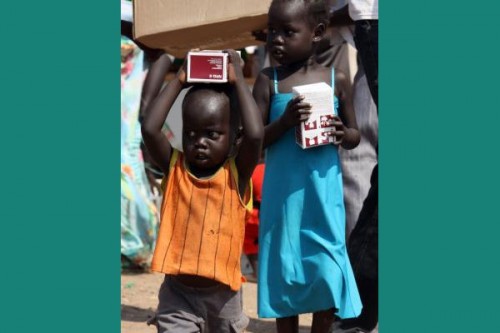UNICEF seeks 1.2 billion USD to help 51 million children in Africa

Nairobi, Dec 6 (IANS) The United Nations Children's Fund (UNICEF) launched an appeal for $1.2 billion to support 51 million children facing multiple crises, including climate shocks, public health emergencies, conflicts, and economic impacts in eastern and southern Africa.
UNICEF said the figure shows an increase of six million children in need compared to the previous year, signalling a further deterioration of the humanitarian situation in the region, Xinhua news agency reported.
The UN agency said in a statement issued in Nairobi, the capital of Kenya, that the funds will enable it to prioritise the needs and rights of underserved children and communities in the region, where more than 63 million people are affected by public health emergencies.
UNICEF Regional Director Etleva Kadilli said that eastern and southern Africa is home to millions of children facing extraordinary challenges.
"Yet even in the face of adversity, we see remarkable dynamism, hope and resilience. By prioritising action and investment, we can make a transformative change, ensuring that children have the opportunities they need to make a difference in their lives," Kadilli said.
UNICEF noted that the growing frequency and rapid spread of public health emergencies, combined with fragile resilience and cross-border population movements, heighten the region's vulnerability to infectious disease outbreaks, including mpox, Marburg, cholera, malaria, and other vaccine-preventable diseases such as measles and polio.
UNICEF said approximately one in three children in the region faces food poverty and 28 million are at risk of being trapped in a cycle of malnutrition and poverty amid declining food production and rising malnutrition.
According to the UN agency, despite improved enrolment rates across the region, children's access to education is dire, with nearly 47 million children out of school.
"Children in this region are at the epicentre of the global learning crisis, and disproportionately affected by public health emergencies, conflict and climate-related disasters, with nine out of 10 children unable to read a simple text by age 10," it said.
Displacement in the region increased by almost 15 per cent due to climate impacts such as floods and droughts as well as escalating conflicts in neighbouring countries, UNICEF said.
From April 2023 to October 10, 2024, more than 826,000 people, including 415,000 children, crossed into South Sudan, fleeing war in Sudan.
To protect children and build community and systemic resilience amid the shocks of multiple crises, UNICEF will continue to prioritise lifesaving efforts for the most vulnerable, while strengthening national capacity and preparedness for timely and efficient humanitarian responses to ensure children's rights.

|

|

